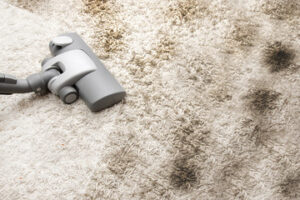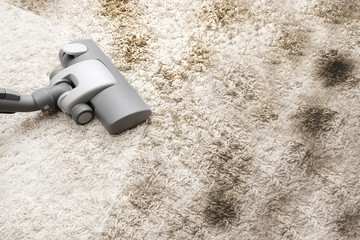Carpet cleaning is the process of removing stains, dirt, and allergens from your carpet. Common cleaning methods include vacuuming, hot water extraction, and dry cleaning. Carpet cleaning also involves using UV light to detect pet stains. Carpet cleaning can be an excellent way to improve the appearance of your home.
Typical methods of carpet cleaning use a combination of chemical cleaners and brushing motions to effectively remove the soil from the carpet. This method is usually used in commercial applications, as hand scrubbing only cleans the top third of the carpet pile. However, it is also suitable for some home applications.
In older days, people would collect dust by sweeping or brushing with tea leaves or cutting grass. Other methods included using lemon, white bread, pipe clay, and turpentine. Ox gall and naphtha were also commonly used as cleaners, and ammonia was used for insect and acid stains. Steam from a clothes iron was also used to clean the carpet, removing dirt and wax from the fabric.
Another common method of carpet cleaning is called carpet shampooing. This method uses a foam-like chemical substance to clean the carpet. The cleaning shampoo is brushed on the carpet with a rotary floor machine, where stiff bristles spin the foam into the carpet. After the cleaning, the carpet is vacuumed to remove any residue. However, this method has a long drying time, which makes it unsuitable for most residential carpets.
Hot water extraction is another method for carpet cleaning and is generally recommended by most carpet manufacturers. However, some manufacturers warn that using other methods could void the carpet warranty. The hot water extractor is an efficient method for cleaning carpets, but prolonged exposure to it can damage the construction of the carpet.
Costs of carpet cleaning vary depending on the type of carpet and overall condition. For a small stain, the cost will be around $40; for a large stain, the price can rise to $300. Food-related stains are less expensive than pet stains, which sink deeper into the pile. Additional fees include the cost of applying deodorizer and anti-static spray.
When choosing a carpet cleaning company, always ask about their guarantee. This should be in writing. If the cleaning does not meet your expectations, the company should make it right. In addition, be sure to ask about their insurance and damage policy. It also pays to get several estimates before choosing one. These will allow you to compare different companies side by side before deciding on one.
Another factor to consider when determining the cost of carpet cleaning is how much space your carpet covers. Larger rooms require more time and materials to clean. Odd-shaped carpets also require more materials. Commercial carpets are generally smaller than residential carpets, but the cost of cleaning a large commercial space can be significantly higher.
Cleaning your carpet regularly is an important part of taking care of your home. Not only does it improve the air quality of your home, but it also protects your health. Various bacteria and allergens are trapped in your carpet. These particles can make it difficult to breathe, especially for people with respiratory problems. Regular vacuuming does not remove these contaminants, but professional carpet cleaning can remove all of them.
Using the right chemicals is essential for maintaining the health of your carpet. However, not all chemicals are made equal. Some can actually do more harm than good. It is important to use carpet cleaners that are safe for your carpet and that have a low pH. To avoid any issues, use the correct chemicals and follow manufacturer instructions.
Perchloroethylene is a common dry-cleaning chemical and is one of the most harmful to your health. It can cause nausea, dizziness, fatigue, and headaches. It can even damage your kidneys and liver. Perchloroethylene is also a known carcinogen, so you need to avoid it if possible.
Carpet cleaning chemicals are used to remove dirt and oil from carpets. They work by lifting dirt from the fiber. This allows the cleaner to use less water and dry the carpet faster. However, chemicals only work on the surface of the carpet, so they are not effective on deeply-seated stains. These chemicals may also leave behind chemical residue and can be harmful to your health.
